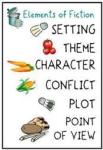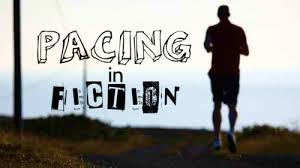 Memorable authors have one thing in common – a writing style that’s as unique as their fingerprints. They connect with their readers through a written voice that’s as recognizable as their face. Analyzing their success, there seems to be six elements which makes their voice shout.
Memorable authors have one thing in common – a writing style that’s as unique as their fingerprints. They connect with their readers through a written voice that’s as recognizable as their face. Analyzing their success, there seems to be six elements which makes their voice shout.
Recently, I was thoroughly encouraged about my writing voice by having a manuscript rejected by a prominent publishing agent.
What? You were encouraged by rejection? What kind of a twisted, tormented bastard are you? Go home, Rodgers, you’re drunk. (I like Hemmingway’s advice. Write drunk. Edit sober.)
 Hey, hang-on! It’s only ten a.m. and I’m sober as a fuckin’ Mormon. Usually, I don’t start drinking until around five (today’s Saturday and the weather’s awesome so I might make an exception) therefore I’ve got time to finish this post while I’m sober and tell you what I really mean by loving rejection. Actually I’m gonna show ya, because tellin’ is not supposed ta be very good writin’. Here’s her rejection letter.
Hey, hang-on! It’s only ten a.m. and I’m sober as a fuckin’ Mormon. Usually, I don’t start drinking until around five (today’s Saturday and the weather’s awesome so I might make an exception) therefore I’ve got time to finish this post while I’m sober and tell you what I really mean by loving rejection. Actually I’m gonna show ya, because tellin’ is not supposed ta be very good writin’. Here’s her rejection letter.
Hi Garry,
Sorry it has taken so long to get back to you. Unfortunately, this will be a pass for me as I did not connect with the story as strongly as I had hoped I would. I will say that I think you are on the right track with your writing. You have a really great voice. A couple of things to be mindful of:
-
In some cases there was far too much description – to the point where the verbiage weighed the story down. This may be a trade secret piece for you, having the background knowledge in the area of forensics or having worked closely in your profession as a coroner. However, the details in such depth can become too technical for the reader. Description is good, as it speaks to showing rather than telling – overly describing turns to telling and less showing.
-
“Head-Hopping” or too much back and forth. This can also be hard on a reader in terms of following the story, having too many side-stories going on at the same time if not executed properly can lead the reader to have to turn back pages in order to figure out where they are at with the story. This is when a story can fail to be a page-turner.
Other than this – you have a really great voice as a writer and I would be very happy to receive future queries from you in the area of crime fiction – police procedural type of stories – if you are so inclined. No promises, but if you write it, I’ll read it. And remember – less is more.
I wish you the best…
 There, how’s that for encouragement? She praised me while smacking me right between the horns with what I’m doing wrong. You just can’t buy this type of help.
There, how’s that for encouragement? She praised me while smacking me right between the horns with what I’m doing wrong. You just can’t buy this type of help.
So it got me to think at what makes a good writing voice and I came up with these six things.
1. A good story to tell.
 Having a clear message in mind is paramount. You have to know what you’re trying to get across and do so as clearly as possible. Stephen King’s Carrie comes to mind. It’s about bullying, pure & simple. Be careful who you push around.
Having a clear message in mind is paramount. You have to know what you’re trying to get across and do so as clearly as possible. Stephen King’s Carrie comes to mind. It’s about bullying, pure & simple. Be careful who you push around.
2. Tone and pace.
 Someone said ‘Write like riding a horse‘. Sometimes it walks. Sometimes it trots. Sometimes it canters. And sometimes the bloody thing flat-out gallops. Do you write casually, like in a normal conversation, or does the piece require formality as if you were applying to Harvard? Are you relaxed? Or are you breathless? Are you waking your reader up like shoving ice cubes down the crack of his ass or are you boring her as if she were watching you lawn bowl.
Someone said ‘Write like riding a horse‘. Sometimes it walks. Sometimes it trots. Sometimes it canters. And sometimes the bloody thing flat-out gallops. Do you write casually, like in a normal conversation, or does the piece require formality as if you were applying to Harvard? Are you relaxed? Or are you breathless? Are you waking your reader up like shoving ice cubes down the crack of his ass or are you boring her as if she were watching you lawn bowl.
3. Perspective.
 What’s YOUR point of view? Keep in mind that it’s your story you’re telling – you’re just showing it through the eyes of your characters. Tell it the way it is. If you intend to write truthfully and how you see it, you’re gonna piss some people off. Too bad. So sad. Get over it.
What’s YOUR point of view? Keep in mind that it’s your story you’re telling – you’re just showing it through the eyes of your characters. Tell it the way it is. If you intend to write truthfully and how you see it, you’re gonna piss some people off. Too bad. So sad. Get over it.
4. Vocabulary.
 I write exactly like I talk and use simple words because that’s what I know and what I use every day. I rarely go for a Thesaurus. For all I care they could be extinct (Boo). I fucking HATE buzz words and corporate-speak! To me, they’re retarded. Don’t treat your reader as if she’s stupid and try to snow her with shit-words. Say whatcha mean and mean whatcha say.
I write exactly like I talk and use simple words because that’s what I know and what I use every day. I rarely go for a Thesaurus. For all I care they could be extinct (Boo). I fucking HATE buzz words and corporate-speak! To me, they’re retarded. Don’t treat your reader as if she’s stupid and try to snow her with shit-words. Say whatcha mean and mean whatcha say.
5. Sentence structure.
 Grammar is good, but not everything. One word sentences are just as acceptable in the right place as long-winded, dragged-out descriptions of the birds and the bees and the flowers and the trees and a crazy, little thing called love. Right? If you haven’t read The Elements of Style by Strunk & White, go get it. It’s the writer’s bible. 100% truthful.
Grammar is good, but not everything. One word sentences are just as acceptable in the right place as long-winded, dragged-out descriptions of the birds and the bees and the flowers and the trees and a crazy, little thing called love. Right? If you haven’t read The Elements of Style by Strunk & White, go get it. It’s the writer’s bible. 100% truthful.
6. Imagery.
Metaphors, similes, alliteration, and other literary devices are life in your voice. Are you creating mental images? I wrote this one yesterday as I wrap up No Life Until Death.
“Here, I’ll raise the operator.” Eliza grabbed the radiophone’s handset and keyed the mike. A squelch like the sound of a cat in a fanbelt squealed in their ears and she cranked down the dial. “Which one do you wanna call first?”













